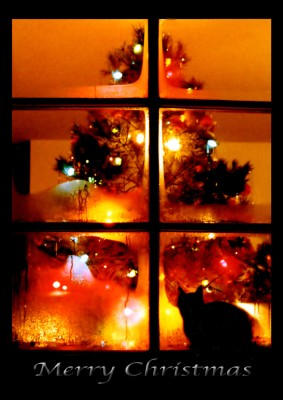As fall moves onward towards winter we have places to go, things to do, people to meet. Yet as we go about our business, we notice the days are getting shorter. Sweaters come out of storage, we close the windows, and on goes the heat.
Advent is a season where we stop and remember that the light of this world is waning in more ways than one. That the world as we know it is passing away.
The world “secular” comes from the Latin word for this present world with its priorities–getting a job, paying the bills, finding a mate. Politics, economics, entertainment, sports are all realities of the secular world. “Secularism” is the modern program that insists that this is all that there is. A version popular in America says that there may be more to life than this, but it is entirely a private affair that you may not talk about in public. God, higher values, heaven, are all out-of- bounds topics in school, politics, and the news media.
Secularism wants us to live under the illusion that things will always be the way they are. There may be ups and downs in the economy, but it will keep humming along. Elections may change the office holders, but the government will just keep on keeping on. That’s the way people thought in Noah’s day. But then the flood came (Mat 24:37-44).
St. Paul calls this attitude being asleep (Ro 13:11-14). God breaking into space and time, in a manger in Bethlehem, changed things forever. The central moment of human history has come and gone; we’re in the end game now. The things that now seem so real, so ultimate, will come to a crashing halt.
For many of us in December, the bleak light injects a dose of melancholy into our disposition. But then we remember that “the holidays” are coming --there is something to look forward to! We string lights on our shrubs and put candles in our windows to cheer ourselves up and thumb our nose at the darkness.
For Christians, these lights have a deeper meaning. The night is far spent, the day is at hand. At the moment when darkness of human society is at its deepest, the Light of the World will come.
So it is a waste of our time to get educated and employed? Should we just spend our days praying, reading the Bible, and trying to predict dates for the Return of the King?
St. Paul sharply rebuked some for taking this approach. As focused as Paul was on the age to come, he was thoroughly engaged in this one. Besides his profound life of prayer and preaching, he labored with his hands to the point of exhaustion so as not be a burden on anyone, and have something to give to the needy. He said that those that refuse to work should not eat (2 Thes 3:6-13). The Second Vatican Council said that living for the future world should make us more, not less, committed to improving this one (Gaudium et Spes 37).
Besides, the Lord clearly says that his Second and final coming will be at the time we least expect it (Mat 24:44). If God is purposely designing it to be a surprise, I don’t think there is much hope of outsmarting Him.
So what do we do about His Coming? Very simple. By the power of his grace, let’s make sure that when the Light arrives that it won’t for us be a cruel light. Are there things in your life that you’d rather not be seen by God and everyone else? Then you’d best get busy rooting them out of your life. Because the Light will reveal all.
This is offered as a reflection on the Scripture readings for the First Sunday in Advent, cycle A (Isaiah 2: 1-5; Psalm 122; Romans 13:11-14; Matthew 24: 37-44). It appears here by permission of the author.
Copyright 2013 Marcellino D'Ambrosio, Ph.D.
photo credit: Steve took it via photopin cc
About the Author
Marcellino D'Ambrosio, Ph.D.
Marcellino D’Ambrosio (aka Dr. Italy) is a New York Times best-selling author, Catholic speaker, pilgrimage leader, and theology professor. Connect with him at dritaly.com or @DrItaly.



.png?width=1806&height=731&name=CatholicMom_hcfm_logo1_pos_871c_2728c%20(002).png)
Comments